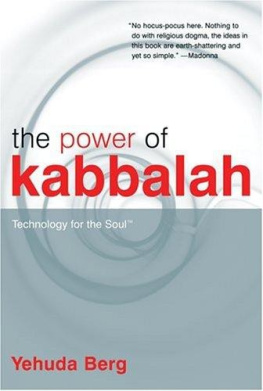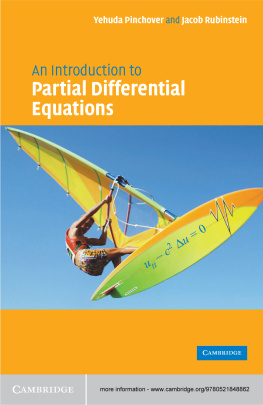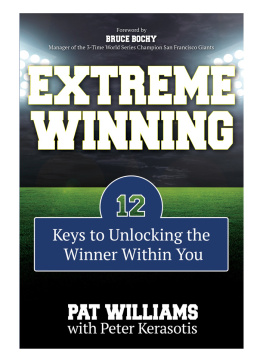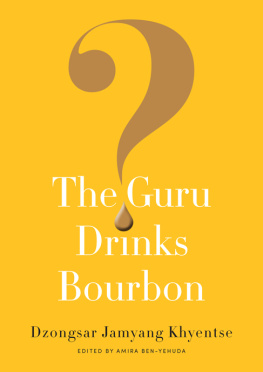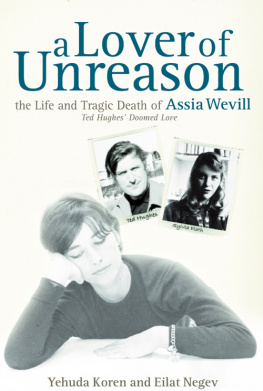CONTENTS
I dedicate this book to my mother and to my daughters, Yarden and Danielle, whom I love so much, and to their mother, Iris.
A special place in my heart is kept and dedicated to Admiral Samuel Tankus from whom one literally never stops learning something, usually about oneself. He taught me the importance of thinking like a winner in creating the power to control and shape your own destiny, no matter what.
FOREWORD
When I became coach of the England rugby team, I had one goal: to win the World Cup as the top-ranked side. So I worked back from that ultimate aim. To that end, I was prepared to look at anything that I thought might give us an advantage over our competitors. Thats how I came to meet Yehuda Shinar.
A business friend of mine told me about how Yehuda had developed a programme aimed at teaching people how to be winners that was getting some impressive results. I thought it was worth looking at so, with an open mind, I flew to Israel to stay with him for a few days.
I was amazed. Not because anything Yehuda was saying was particularly revelatory; if anything, quite the opposite. I was amazed at how simple it was. The most successful things in life are often the most simple perhaps because they are less likely to go wrong. Yehuda had decoded the apparently complicated art of winning into a basic science. He was explaining everything Id ever experienced and done when I was successful in a competitive environment, both in sport and in business. But up until then, I wasnt actually aware of precisely what I was doing when I was succeeding or, for that matter, when I was failing. By developing my awareness and self-understanding, I saw that I could increase my frequency of success and decrease my frequency of failure. Id just never heard anyone stating so simply and clearly what were obvious truths about winning. It was exactly the link Id been searching for.
Although Yehuda didnt know anything about rugby, I felt that we could use his model for our purposes. So I brought him across to work with my coaches. We needed to think about coaching in a new and different way. As a nation we have the potential to achieve outstanding results in so many areas, but we consistently fail to maximise that potential. I knew we needed to change our mentality, our mindset even our culture if we wanted to be the best in the world.
Yehuda had drawn up a list of what he called winning behaviours areas like maintaining momentum, developing self-control, thinking correctly under pressure, continuously analysing and debriefing our performances. Id never looked at most of these before as clear and obvious aspects that could be measured, controlled and coached. We had the winning behaviour principles condensed into seven posters, each focusing on a different part of the game. We even had the key points emblazoned across the walls and ceiling in the England dressing room at Twickenham. Together it formed a tight, coherent, focused strategy.
The results speak for themselves. We increased our frequency of winning dramatically to arrive at the World Cup as the favourites and top-ranked team. And when the players really needed to think clearly under pressure, they did it. I am not saying that Yehuda won us the World Cup but he was an important part of the team for a period of time when I was developing our strategy to communicate what winning actually meant to players and coaches alike.
The beauty of Yehudas model is its simplicity and adaptability. Whether you want to be more successful in sport, in business or in your personal life, I believe you can adapt Yehudas model to make you think like a winner; to give you that crucial advantage over others.
I hope this book will give you the satisfaction of overcoming your weaknesses and achieving what you have always dreamed about but never thought possible.
We ended up achieving our ultimate aim and Yehudas model was part of that success. I am confident that what you will read in this book will allow you to draw up your own game plan, to actively maximise your potential and so meet your personal goals. I wish you every success.
Sir Clive Woodward, OBE
London, 2007
PREFACE
WHY I HAVE WRITTEN THIS BOOK
I am a winning coach. I run a company in Israel called Winning Enterprises dedicated to helping people like you maximise their potential, be successful and win.
My job is varied. Over the past 18 years I have worked with all sorts of people: housewives, fighter pilots, opera singers, small business owners, footballers and high-flying bank executives. Ive been credited with being the man behind the success of many famous people. Just as rewardingly, Ive also helped many more regular people achieve the kinds of success and happiness in their lives that they never dreamed possible.
I started my company almost by accident. Back in the early 1990s I was working as an analyst for the personnel departments of various business clients who wanted to find out the suitability of the applicants for their job vacancies. As we all know, organisations can fall or flourish depending on whom they employ. Choose the right person from the outset and huge mistakes can be averted and money can be saved. My office tested and analysed the candidates and evaluated their potential in order to help companies make the best appointments.
Each client seemed to want to know pretty much the same thing: will this candidate be a winner? However, they all had very different ideas of what a winner was. There was no consensus as to the attributes that make up a winner. For example, some clients perceived winners to be those candidates who were strong-minded and decisive with obvious leadership potential. Others perceived them to be open-minded, creative and with a desire to learn. So I decided to see if I could decode what makes someone a winner, what makes them successful.
In 2006, I was given perhaps my most unusual challenge to date. I was asked by the Scottish Institute of Sport Foundation to be a part of their programme to try to neutralise the Scottish peoples negative outlook on life that has become their national stereotype.
It soon struck me that this attitude wasnt unique to Scotland, or even to Britain although it is probably true that having a fairly negative or cynical outlook on life is part of British culture. Negativity is something that affects people all around the world to varying degrees, though sometimes we might not even realise it. Compelled to take on the ambitious commission to help change Scotlands unhealthily pessimistic mindset, I decided to write a manual to go along with it that would apply to people anywhere in the world. This is that manual.
I have already enjoyed dramatic success in counteracting a defeatist mentality on a smaller scale. Most famously, I worked with coach Clive Woodward to turn the England rugby team from nearly-men into winners; winners of the 2003 World Cup, no less. It wasnt because I am some master tactician I know very little about rugby but because, through Clive and his coaches, I was able to instil winning behaviour patterns into the players. That relatively localised success had a huge feel-good effect in England. All of a sudden there was a groundswell of pride and a feeling of invincibility among English people again. Winning is a powerful experience.
The result of my years of research and analysis is a formula for identifying and producing winners. The beauty of this formula is its simplicity, adaptability and universal applicability. It is not something that takes years of hard work to perfect; nor is it something that only an elite few can use. I have always felt that my work is for everyone, and so writing this book is the best way of getting my message across to the widest possible audience.



